Sometimes I Think We Are Alone In The Universe And Sometimes I Think We’re Not. In Either Case The
Sometimes I think we are alone in the universe and sometimes I think we’re not. In either case the idea is quite staggering
Arthur C Clarke (via eearth)
More Posts from Astrotidbits-blog and Others

Solar

Why Neutrinos are so Weird
If you held out your thumb, every second about 65 billion neutrinos will pass through it. Besides photons, neutrinos are the most abundant particle in the universe, and by far the most unique.
The existence of the neutrino was first theorized by Wolfgang Pauli, after noticing how energy didn’t seem to be conserved in beta decay. He believed that the missing energy was being carried away by some “invisible” particle. He would later say “I have done a terrible thing, I have postulated a particle that cannot be detected.”
Although elusive, neutrinos can be detected, but it requires sensitive, and often massive detectors. After finding that neutrinos came in three types: electron, muon, and tau, a problem seemed to emerge. Electron neutrinos are created all the time in the Sun, as a by-product of nuclear fusion, but they would always find only a third of the total number of electron neutrinos they were expecting. So, where did the missing neutrinos go?
It turns out, neutrinos actually oscillate back and forth between the three different types. So, by the time the neutrinos from the Sun had reached Earth, two thirds of them have turned into muon and tau neutrinos. This discovery was especially surprising, since everyone thought neutrinos had no mass, like the photon. The fact that neutrinos could change in-flight implied that they could experience time, and due to special relativity, this means they must have mass.
While that mystery has been solved, we still have plenty to learn from these strange particles. Exactly how much do they weigh? Although we know they must have mass, they are so light, we can’t tell how much. Since they have no electric charge, is a neutrino its own anti-particle? Is there more than just three types of neutrinos? Answering these could help us uncover some of the biggest mysteries in physics today.
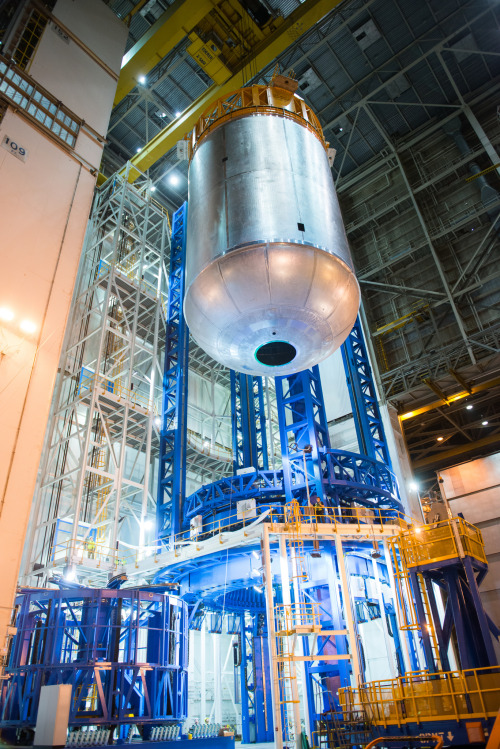
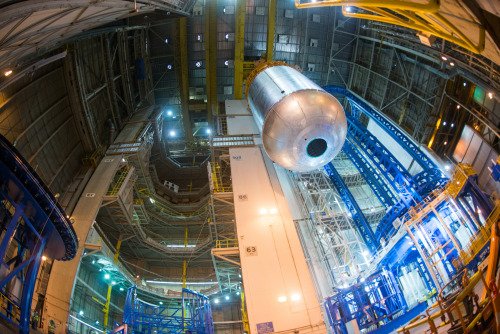
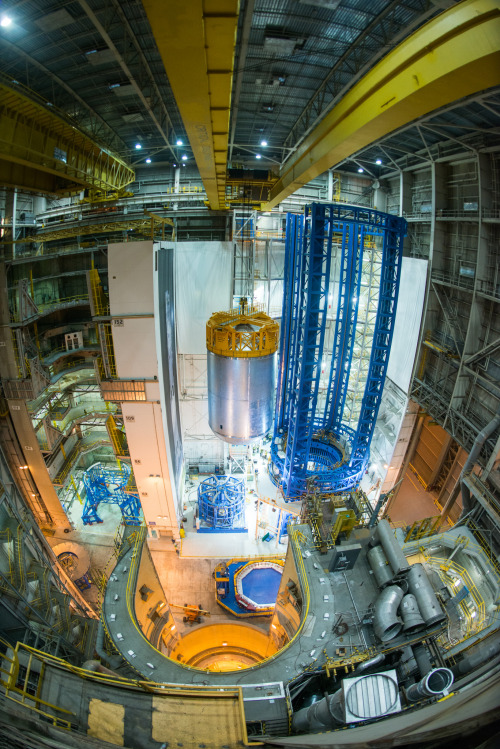
Liquid oxygen tank confidence weld complete on VAC
A liquid oxygen tank confidence article for NASA’s new rocket, the Space Launch System, completes final welding on the Vertical Assembly Center at Michoud Assembly Facility in New Orleans.
A liquid oxygen tank confidence article for NASA’s new rocket, the Space Launch System, completes final welding on the Vertical Assembly Center at Michoud Assembly Facility in New Orleans.
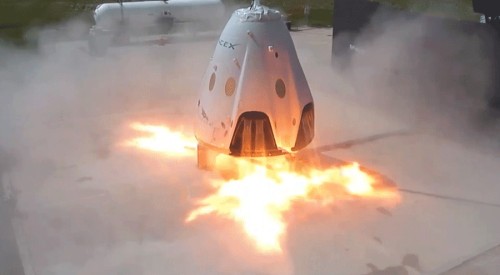
SpaceX announced they are planning to send their Red Dragon capsule to Mars as soon as 2018
To send Red Dragon spacecraft to Mars, SpaceX is building a mega-rocket called Falcon Heavy. Based on the company’s successful Falcon 9, Falcon Heavy consists of three core rocket stages, each of which is equipped with landing legs for reusability. They would use the capsule’s thrusters to make a landing.
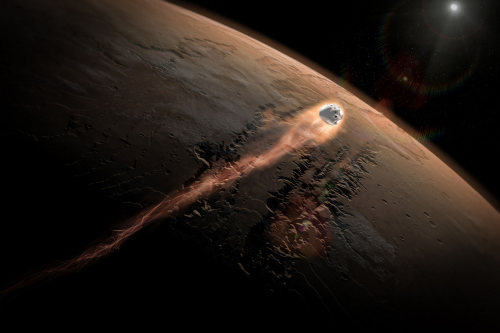
This artist’s illustration shows how the capsule could enter Mars’ atmosphere. SpaceX has successfully returned their capsules to Earth during space station resupply missions for NASA.
The Dragon can carry seven astronauts to and from destinations like the International Space Station (not yet a manned mission to Mars I’d guess 😄). Here’s an illustration of the Dragon Version 1 (the new version has some differences), to get the idea:
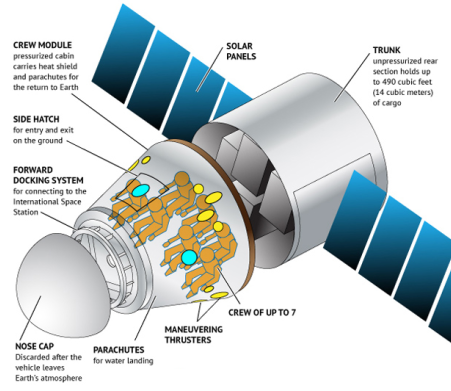
credit: SpaceX, Karl Tate/Space.com
The Pillars of Creation and Spotting Comet Lovejoy
This week in space news, a new makeover for one of the Hubble Telescope’s most famous images, and tips on spotting Comet Lovejoy in the night sky.
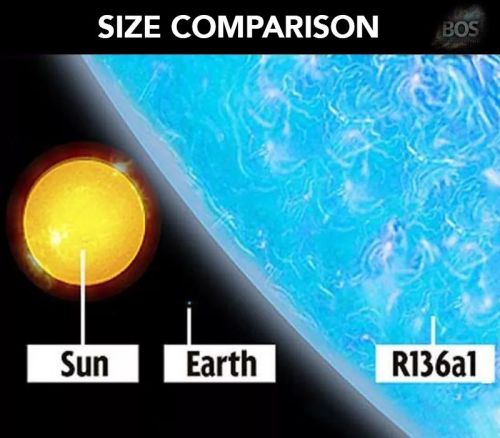
RMC 136a1 is a Wolf–Rayet star located at the center of R136, the central condensation of stars of the large NGC 2070 open cluster in the Tarantula Nebula.
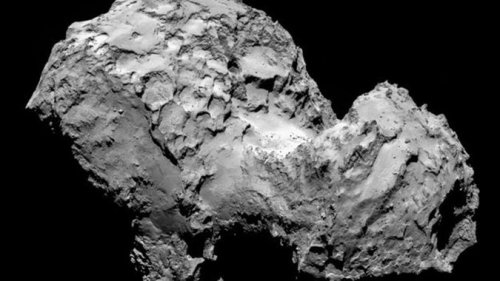
European Spacecraft Pulls Alongside Comet “After 10 years and a journey of four billion miles, the European Space Agency’s Rosetta spacecraft arrived at its destination on Wednesday for the first extended, close examination of a comet. A six-minute thruster firing at 5 a.m. Eastern time, the last in a series of 10 over the past few months, slowed Rosetta to the pace of a person walking, about two miles per hour relative to the speed of its target, Comet 67P/Churyumov-Gerasimenko.”
Find out more from the nytimes.
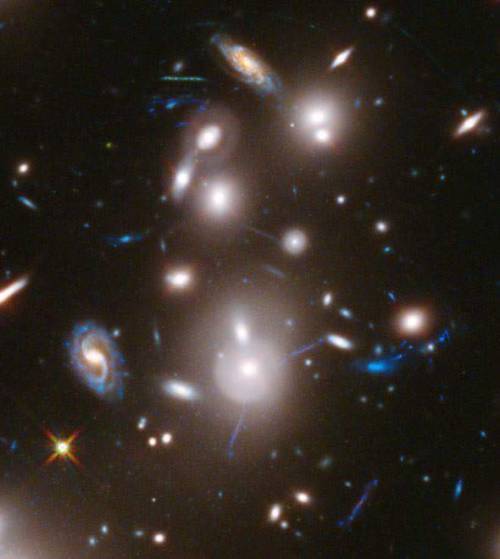
Keep reading
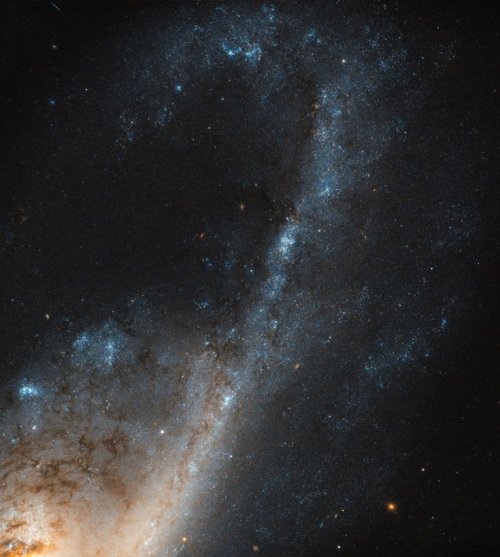
-
 frenemyofthestate-blog liked this · 7 years ago
frenemyofthestate-blog liked this · 7 years ago -
 cosmic-villain reblogged this · 7 years ago
cosmic-villain reblogged this · 7 years ago -
 stapelia-hirsuta liked this · 7 years ago
stapelia-hirsuta liked this · 7 years ago -
 mysteriesnsecrets-blog liked this · 7 years ago
mysteriesnsecrets-blog liked this · 7 years ago -
 coloradocowgirlforchrist reblogged this · 7 years ago
coloradocowgirlforchrist reblogged this · 7 years ago -
 14lonelyroses-blog liked this · 7 years ago
14lonelyroses-blog liked this · 7 years ago -
 c-enelope liked this · 7 years ago
c-enelope liked this · 7 years ago -
 spaceeurydice liked this · 7 years ago
spaceeurydice liked this · 7 years ago -
 tear-it-down reblogged this · 7 years ago
tear-it-down reblogged this · 7 years ago -
 kelomona reblogged this · 7 years ago
kelomona reblogged this · 7 years ago -
 6riku liked this · 7 years ago
6riku liked this · 7 years ago -
 feed-the-crows liked this · 7 years ago
feed-the-crows liked this · 7 years ago -
 tear-it-down liked this · 7 years ago
tear-it-down liked this · 7 years ago -
 broadstreetbully1 liked this · 7 years ago
broadstreetbully1 liked this · 7 years ago -
 enchantedblog reblogged this · 7 years ago
enchantedblog reblogged this · 7 years ago -
 thedarksideofthepeach reblogged this · 7 years ago
thedarksideofthepeach reblogged this · 7 years ago -
 thedarksideofthepeach liked this · 7 years ago
thedarksideofthepeach liked this · 7 years ago -
 unknownwhateva liked this · 7 years ago
unknownwhateva liked this · 7 years ago -
 nymphaerectus liked this · 7 years ago
nymphaerectus liked this · 7 years ago -
 nikkinspace reblogged this · 7 years ago
nikkinspace reblogged this · 7 years ago -
 phoenixfirelion reblogged this · 7 years ago
phoenixfirelion reblogged this · 7 years ago -
 earthprincess liked this · 7 years ago
earthprincess liked this · 7 years ago -
 milakavo-blog liked this · 7 years ago
milakavo-blog liked this · 7 years ago -
 nikkinspace reblogged this · 7 years ago
nikkinspace reblogged this · 7 years ago -
 saadrvh reblogged this · 7 years ago
saadrvh reblogged this · 7 years ago -
 barond90 reblogged this · 7 years ago
barond90 reblogged this · 7 years ago -
 un-francophone liked this · 7 years ago
un-francophone liked this · 7 years ago -
 friedesgreatscythe reblogged this · 8 years ago
friedesgreatscythe reblogged this · 8 years ago -
 trigonis liked this · 8 years ago
trigonis liked this · 8 years ago -
 chubbykoneko liked this · 8 years ago
chubbykoneko liked this · 8 years ago -
 obicoconobi reblogged this · 8 years ago
obicoconobi reblogged this · 8 years ago -
 willowenigma reblogged this · 8 years ago
willowenigma reblogged this · 8 years ago -
 jjems645-blog liked this · 8 years ago
jjems645-blog liked this · 8 years ago -
 ki-wonder reblogged this · 8 years ago
ki-wonder reblogged this · 8 years ago -
 ununnilium liked this · 8 years ago
ununnilium liked this · 8 years ago -
 melinda-t-charville liked this · 8 years ago
melinda-t-charville liked this · 8 years ago -
 ecouter-bien liked this · 8 years ago
ecouter-bien liked this · 8 years ago -
 creepingmonsterism liked this · 8 years ago
creepingmonsterism liked this · 8 years ago -
 mumblingsage reblogged this · 8 years ago
mumblingsage reblogged this · 8 years ago -
 wickedwitchofthegoodtimes reblogged this · 8 years ago
wickedwitchofthegoodtimes reblogged this · 8 years ago -
 lifegoblet reblogged this · 8 years ago
lifegoblet reblogged this · 8 years ago -
 annabellioncourt reblogged this · 8 years ago
annabellioncourt reblogged this · 8 years ago -
 croptoparrowboy reblogged this · 8 years ago
croptoparrowboy reblogged this · 8 years ago -
 croptoparrowboy reblogged this · 8 years ago
croptoparrowboy reblogged this · 8 years ago -
 bre--eze liked this · 8 years ago
bre--eze liked this · 8 years ago